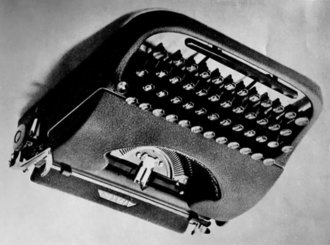
Critical Conservatism – Reconsidering Media, Science, and Democracy
International Workshop – Bauhaus University Weimar – June 23–25, 2021
This workshop explores the impact of conservatism on today’s media studies. Broadly understood as an attitude and/or theory emphasizing values of societal stability and continuity, while highlighting the importance of tradition, authority, religion, etc., “conservatism” will be investigated here with respect to its manifest as well as latent impact on the recent study of media (such as film, TV, and the Internet) and media-related objects, such as the “materialities of communication.” Our focus will be on the German Media Theory, an ensemble of topics, methods and styles of reasonings associated that emerged in the 1980s and 1990s and in the past decade has received international interest especially in the English speaking sphere.
Currently there is an emerging debate concerning the historical underpinnings of this specific branch of media scholarship. This debate has highlighted the irritating fact that there is an obvious absence of topics like gender, race and economics in large parts of German Media Theory as well as the open rejection of notions like society, the public sphere, political participation, and/or emancipation. At the same time, the debate has made clear the degree to which this particular branch of media studies refers to and relies on right-wing thinkers, e.g. Oswald Spengler, Carl Schmitt, Ernst Jünger and Martin Heidegger, while entertaining conservative tropes like anti-modernism, esotericism, and decisionism. At the same time German Media Theory largely rejected or ignored the critiques of these thinkers and topics offered by the proponents of the early Frankfurt School, humanist authors and feminist scholars in science and technology studies.
Our workshop is meant to further explore the history and currency of conservatism in media studies in German Media Theory and beyond. We hope to better understand the contexts, constellations and cycles in which this field of study emerged and legitimized itself, in particular the political, cultural and academic situation of the 1980s and 1990s. We are interested in studying the strategies applied by media scholars in the German context in order to combine postmodern theories and conservative thinking, while reaching out to Luhmannian sociology, radical constructivism, and Actor Network Theory. We like to discuss the conservative reluctance displayed by some German media scholars vis-à-vis recent developments in media technologies, in particular digital devices, and we will question the ways in which media studies has re-invented its own past.
Program
Wednesday 23.06. 2021
16:00 Welcome & Introduction
16:15 Jonathan Sterne: Justice and Injustice – The Structuring Absences of German Media Theory
17:15 Maren Haffke: Watermusic – Kittler, Sound and Whiteness
Thursday 24.06 2021
16:00 Gertrud Koch: With Heidegger off the Beaten Track – Mit Heidegger auf dem ‘Holzweg’
17:00 Christian Voller: Who’s afraid of Friedrich Kittler? – Media Theory as Undialectical Materialism
18:00 Adrian Daub: German Media Theory, Canonicity and the Gender of Germanistik
Friday 25.06.2021
16:00 Christoph Engemann: Reading Deleuze with Schmitt: Rechtsdeleuzianismus
17:00 Vinzenz Hediger: So You Think You’re a Secularist: Catholicism in Bazin and Semiotics
18:00 Henning Schmidgen: The Latourian Impasse From Media to Actor Networks and Back Again
19:00 Round Table – Media Theories and Conservativisms
Program and workshop organization by Dr. Christoph Engemann, Bauhaus University Weimar/Ruhr University Bochum.
